Japan, the beautiful land of the rising sun. One of the most civilized, advanced and popular countries in the whole world. Its amazing culture, far from disappearing, has merged with modern life to give birth to one of the most interesting and striking towns.
Today, hundreds of thousands of tourists visit this famous international tourist destination. Sure , everyone wants to visit Japan . However, given such cultural differences with the West, it is not surprising that more than one makes the mistake of acting in ways that may be seen as inappropriate for Japanese culture. That is why, to avoid bad times, you should review these 10 important lessons if you are going to travel or live in Japan.

10 lessons you should know if you are going to Japan
1. You must return the favors
This is one of the first lessons you will learn to appreciate from the Japanese . No matter what happens, they always return favors as quickly as possible. To make good friends and create strong relationships in this country, being dedicated to each other is the key.
Do not worry if you are not one of those people who are especially creative when it comes to giving gifts or showing your gratitude, because the Japanese market offers various options that you can buy in any store: cookies, decorations, dolls… among many other details. In fact, anything you offer the other will be seen as a gesture of kindness. Even a soda from the vending machine is enough to make a Japanese feel your gratitude.
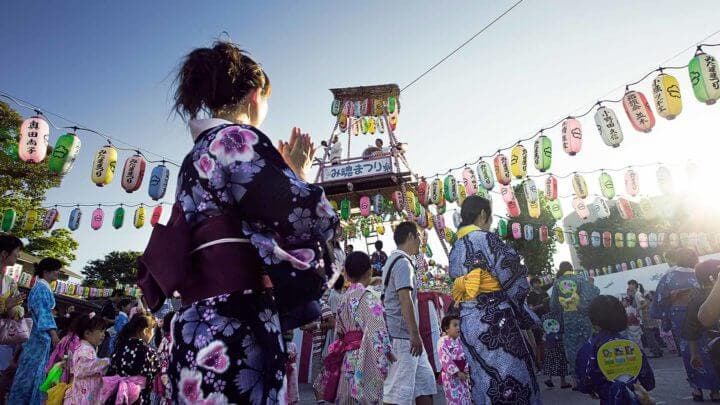
2. Education goes beyond a “please” and a “thank you”
You have probably never met such courteous and polite people before. For Japanese culture , politeness is omnipresent. You’ll find it in the way they talk, in their customer service, and even in their ways of treating a stranger for the first time.
This may be awkward and even suspicious for a foreigner, but if you happen to ask for directions when traveling to Japan, don’t be surprised if the person even offers to accompany you until you can make your own way. destination. His manner of courtesy goes beyond occasional generosity.
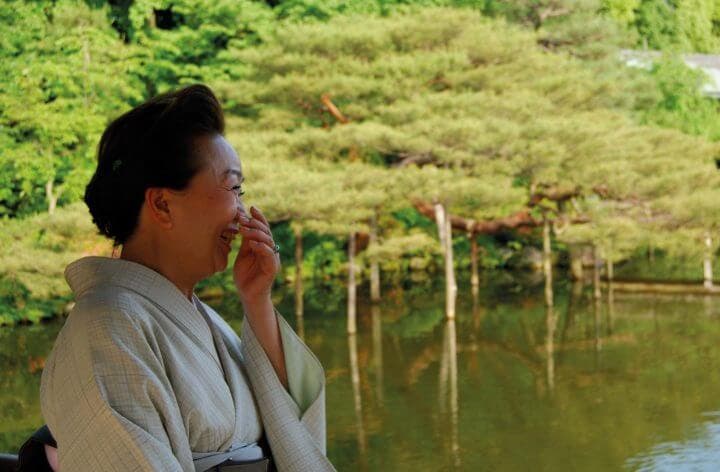
3. You must put others first
For Japanese culture it is very important to let the other know how valuable they are to their peers and society. One of the most important lessons of Japanese culture is sacrifice. It is in its history, in its literature, in its poetry and tattooed in the hearts of its people.
Wait a minute: that does not mean that you should go looking for a goat to offer its blood to any God. With the details is more than enough. Giving your best friend the biggest piece of the cake and giving up your seat to an elderly person on public transport are things that are part of everyday life in Japan, and they don’t cost anyone their life. After all, isn’t it great that the people around you feel special?
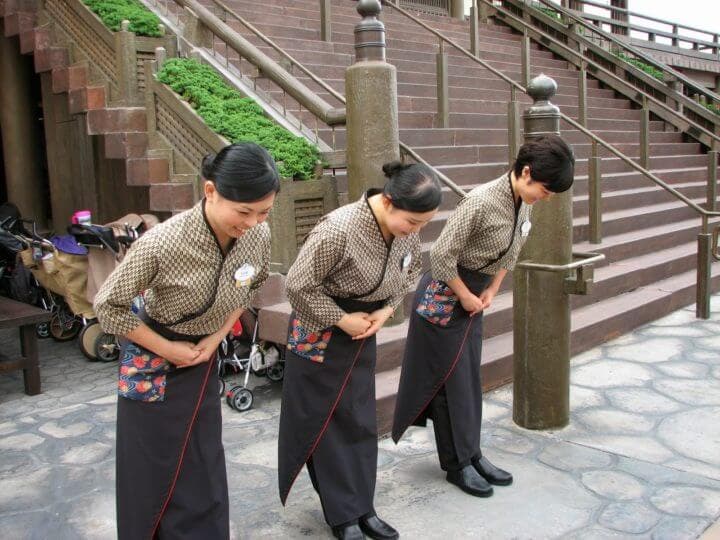
4. The importance of inclusion
This is one of the most different things about Japanese culture compared to Western culture, but at the same time it is a valuable lesson that everyone should learn.
For the Japanese, inclusion is one of the foundations of society and the best tool for cultivating and caring for human relationships.
In this country, you are not restricted from inviting any of your co-workers to nomihoudai —an hour-long all-you-can-drink session—even if you don’t like one of them. Those interested in a topic of conversation are not excluded, nor will you have to go through that bitter moment again when all the classmates are invited to a party, but not you. Everyone present in the photos is also included, regardless of whether they are family, friends or just someone who was passing by.
Including everyone promotes tolerance , and helps us understand and appreciate other people’s differences in order to learn from them.
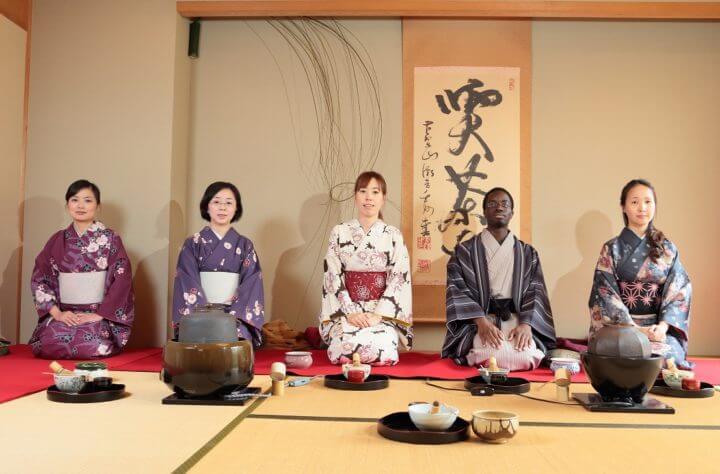
5. Drinking is not synonymous with violence
If you have ever watched Japanese dramas or animation, you will surely remember a character like this: a middle-aged man, dressed in a suit, happily drinking a beer.
For the Japanese, having a few drinks after work is something very normal, and getting drunk is too. However, luckily for many, these drunks are far from annoying or even dangerous.
Contrary to Western society, Japanese people very rarely engage in violent behavior when drinking. That is why events such as bar fights or crimes under the influence of alcohol are rare.

6. Listening is sometimes better than talking
Have you ever heard a Japanese speak? They usually have soft voices and are very friendly. They are also usually shy and modest, so don’t worry if your new Japanese friend doesn’t talk much while you walk around the city. It’s not that they don’t like you—or who knows, maybe they do—it’s that they’re really good listeners.
A very valuable lesson that you can learn from Japan is to know how to listen. The Japanese tend to let the other person speak first before rushing into the conversation. But why this?
They do so because they are aware that it is much easier to access the other’s opinion if they are allowed to express it first. In this way, they can expose theirs taking into account the points considered by their interlocutor. Even when discussing, you may notice how a Japanese simply prefers to remain silent, since there is no longer any possibility of exchange.

7. Never stop trying
Ganbarimasu! Do you know the expression? If you are one of the faithful connoisseurs of Japanese culture, this expression must be one of those phrases that you can surely say perfectly in Japanese.
This Japanese expression, which does not have a literal translation in other languages, expresses, broadly speaking, that you plan to give your all in some activity or situation that you are about to face.
If you plan to live or travel to Japan , putting effort into what you do is a must. In this culture, no matter how complicated the circumstances become, you must always offer your best effort, under the premise that everyone else will do the same.

8. Be a good citizen
Japanese society is characterized not only by its order, peaceful attitude, and kindness, but also by its strong commitment to creating a better world. That is why, from big cities like Tokyo and Fukuoka to small towns like Nagoya, you will find people who go out every day to make their home an ideal place. They are people committed to being good citizens.
In spring, when the cherry trees bloom, huge parties are organized under them. People snack, laugh and drink happily. However, once it’s all over, it’s very rare to come across dirty glasses or plates. The Japanese make sure to clean up the spaces they have used , so they can keep them.
Therefore, do not forget, while traveling or living in Japan, that what you do affects others. As the Japanese are aware of this, they take care of each other and their spaces.
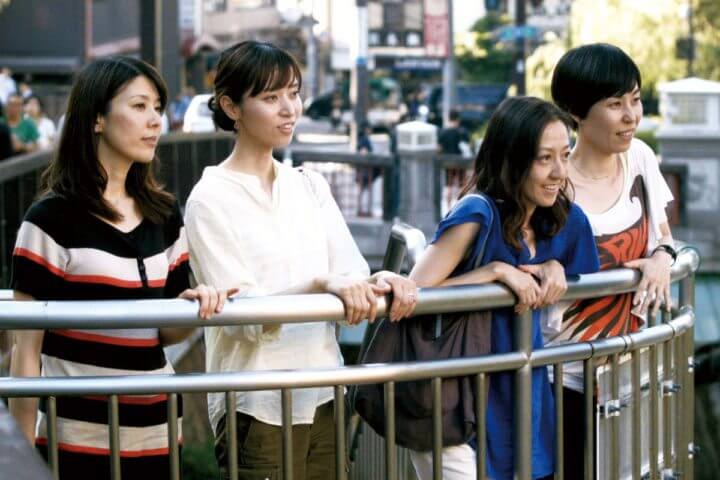
9. Elegance above all
If there is something that characterizes the Japanese, it is precisely the elegance with which they do most things.
While you are traveling or living in Japan, keep that custom. Regardless of social class, the Japanese try to act with elegance and respect at all times , as it is a sign of excellent education and good upbringing.
No matter how insignificant they are, such as handing objects with both hands, dressing nicely, or greeting with a smile, don’t neglect them. Grace, respect and sophistication can open many doors for you in the land of the rising sun .

10. Respect what belongs to others
Have you ever heard that old popular saying: “If I find it, I keep it”? Well, that in Japan is far from being seen as correct. For the Japanese, what is foreign is sacred.
If you plan to live or travel in Japan, you should keep in mind that what does not belong to you should be kept well out of your hands. Things like theft or simply not returning something to its original owner is viewed especially poorly in that culture. Even if it is a coin or a glove, if a Japanese realizes that you have dropped it, they will go out of their way to return it to you.
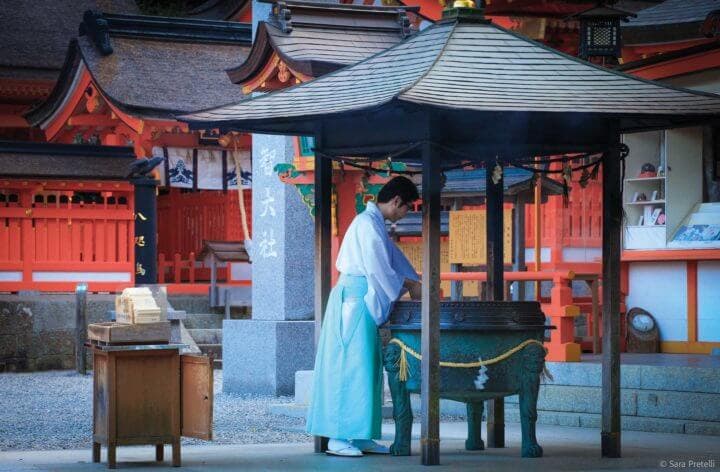
References
- Chavez, A. 17 important lessons I learned while living in Japan, for Business Insider [Reviewed June 2017].